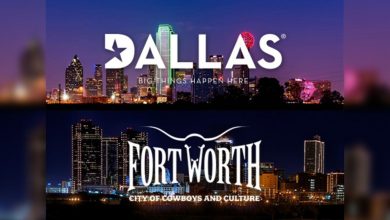Comparison of Casino Software for Malta Regulation
Malta stands as a beacon of regulatory integrity in the online gambling world. Its framework, designed to foster transparency and fair play, is overseen by an entity known for rigorous oversight. The regulations here are not just legal formalities; they are the backbone of a trust-based ecosystem that reassures players, operators, and regulators alike.
This comprehensive approach to governance attracts serious operators seeking long-term credibility. From application to ongoing compliance, the process emphasises diligence and thorough documentation. If you're a platform provider eyeing the European market, understanding Malta's regulatory landscape is not optional—it’s essential for sustainable Love Casino operation.
Role of the Malta Gaming Authority (MGA)
The Malta Gaming Authority (MGA) serves as the primary gatekeeper of the island’s iGaming sector. It is tasked with issuing licences, monitoring compliance, and enforcing rules that uphold fairness and protect vulnerable players. Under its jurisdiction, licensed software providers are expected to maintain transparency and accountability at all stages.
Regulatory standards and licensing categories
MGA's licensing framework is divided into distinct categories, each catering to different facets of the gaming ecosystem. Whether you're offering B2C services or developing B2B platforms, you must fit into a clear regulatory classification. This structure helps streamline oversight and ensures that every entity operates within clearly defined parameters.
Categories include critical gaming supplies, controlled skill games, and remote gaming, each with their own set of requirements and obligations. Such granularity aids operators in aligning their technological and operational models with the exact demands of their licence type.
Why Malta is a preferred jurisdiction
Malta's appeal extends beyond just regulatory reliability. Its European Union membership, political stability, and experienced legal workforce make it uniquely attractive. Moreover, the MGA is known for fostering innovation through constructive dialogue with the industry rather than stifling it with red tape.
Core Requirements for Casino Software under Malta Regulation
Software vendors aiming for MGA certification must align with a demanding checklist of technical, ethical, and operational standards. These go beyond basic functionality; compliance here requires a deep integration of secure architecture, responsible gambling controls, and robust player protection mechanisms.
Being certified under the MGA isn't a one-time achievement. It demands ongoing updates, performance logs, and constant readiness for re-assessment. Vendors must treat regulatory alignment not as a milestone but as a perpetual mandate that evolves alongside technology and consumer behaviour.
Technical compliance and certification
Certification under the MGA involves more than ticking checkboxes. Systems are subjected to rigorous third-party evaluations covering RNG integrity, transaction logging, and failover protocols. Fault-tolerant infrastructure, seamless data replication, and error recovery systems form the foundation of compliant platforms.
The technical review also involves penetration testing and source code analysis. By embedding compliance into the very codebase, software vendors ensure consistent performance under regulatory scrutiny. Meeting these standards offers peace of mind to operators and users alike.
Data security and integrity standards
Casino software licensed in Malta must implement advanced encryption protocols and secure authentication layers. GDPR compliance is non-negotiable, ensuring user data is processed lawfully and transparently. In addition to safeguarding against breaches, these practices build long-term trust.
Responsible gaming functionalities
Software must integrate modules that support responsible gaming. These include deposit limits, reality checks, and self-exclusion tools. Beyond features, operators are required to demonstrate their proactive use and monitoring of such safeguards in real-time operations.
Leading Casino Software Providers Licensed in Malta
Several software firms have become synonymous with excellence under the MGA banner. Their platforms are not only feature-rich but also structurally sound and audit-ready. This section introduces top performers, highlighting what sets each apart in an increasingly competitive landscape.
The reputations of these providers rest not only on technological prowess but also on consistent compliance and proven track records. By choosing an MGA-certified vendor, operators invest in peace of mind and operational stability, backed by transparent practices and verifiable performance metrics.
Overview of top MGA-certified platforms
Among the leaders in this field are Evolution Gaming, NetEnt, and Playtech. These platforms are revered for their innovation, game diversity, and robust backend systems. They routinely undergo audits to maintain their standing and align with evolving regulatory expectations.
Licensing track record and regulatory history
A provider’s licensing history is a vital barometer of its reliability. Frequent renewals, few to no sanctions, and positive audit outcomes suggest an ingrained culture of compliance. This is not merely about legality; it's about building platforms that withstand regulatory and commercial pressure alike.
Performance Comparison of MGA-Licensed Software
Performance metrics offer critical insights into how well a software platform operates under real-world conditions. For casino operators, it's not just about games; it's about system responsiveness, user experience, and fault tolerance. Below, we compare key elements shaping this performance.
As players demand seamless, lag-free interaction, the strength of back-end infrastructure becomes a defining competitive edge. Hence, evaluating performance is indispensable when selecting a platform that won’t just meet but exceed expectations under regulatory scrutiny.
Game variety and quality
A rich game portfolio that includes slots, live dealer tables, and skill-based games is a must. Moreover, each title should be provably fair and engage users across diverse demographics. Quality assurance involves multi-layer testing, compatibility reviews, and user feedback loops to ensure excellence.
System stability and server uptime
Server uptime directly impacts revenue and reputation. The best MGA-compliant platforms maintain 99.9% uptime or higher. Their infrastructures often feature real-time load balancing and geo-distributed servers to mitigate latency and ensure uninterrupted gameplay even during peak demand.
Here's a quick overview of typical performance metrics:
| Provider | Average Uptime | Latency (ms) | Game Load Speed |
|---|---|---|---|
| NetEnt | 99.95% | 120 | 2.3s |
| Evolution Gaming | 99.97% | 100 | 2.1s |
| Playtech | 99.92% | 135 | 2.5s |
Integration with third-party services
Compatibility with marketing tools, payment processors, and CRM systems enhances operational agility. Open API access, robust documentation, and modular SDKs facilitate seamless integration with minimal disruption. Third-party partnerships often enrich the ecosystem, extending functionality without burdening the native codebase.
Compliance Features Across Software Providers
Every provider boasting an MGA licence must embed compliance within their technology stack. This means not only having the right tools in place but also ensuring these tools perform consistently under regulatory inspection. Let’s look at some key compliance enablers commonly embedded in top-tier platforms.
These functionalities offer real-time monitoring, automatic reporting, and integrated dashboards to simplify adherence. Providers often differentiate themselves not by ticking the same compliance boxes, but by how intuitively and seamlessly they integrate these controls into daily operations.
AML (Anti-Money Laundering) monitoring tools
AML tools are essential to detect and report suspicious patterns before they become liabilities. Automated transaction monitoring, risk-scoring algorithms, and alert systems make it possible to comply with AMLD5 requirements without overwhelming compliance teams. Such systems evolve with each new directive, ensuring continued alignment.
Player verification and KYC automation
Swift onboarding is balanced with rigorous checks. Automated identity verification, address validation, and real-time document scanning support full KYC lifecycle management. These processes reduce friction for legitimate players while flagging anomalies early, aiding in both compliance and customer satisfaction.
Reporting systems for regulatory audits
Scheduled and ad hoc reports are essential for audit readiness. Top-tier systems offer drag-and-drop interfaces, automated data pipelines, and instant access to key metrics. These enable operators to respond quickly and accurately to regulatory queries, boosting transparency and trust.
Customisation and Localisation Capabilities
One-size-fits-all software rarely succeeds in regulated markets. MGA-compliant platforms are increasingly offering flexible frameworks that adapt to regional preferences, languages, and cultural nuances. This section explores how well different providers enable localisation without sacrificing compliance or performance.
From UI/UX tailoring to jurisdiction-specific content controls, effective customisation often spells the difference between market success and stagnation. Operators must evaluate these capabilities not just for initial launch, but for long-term engagement and scalability.
Multi-language support
Multilingual capability is critical for serving diverse player bases. Dynamic content switching, localised customer service, and in-game translations must function seamlessly. Language is more than a communication tool—it’s a trust-building mechanism and a key driver of player retention.
Regional market adaptation
Adapting to regional markets goes beyond translation. Software must accommodate legal, cultural, and transactional nuances specific to each locale. For instance, games that appeal in Northern Europe may underperform in Mediterranean regions unless their format, payout schemes, or promotional structures are adjusted. Flexible back-end tools enable operators to tailor offerings without recoding core systems.
User interface and user experience design
Intuitive interfaces reduce user friction and boost engagement. Providers must balance sleek visual aesthetics with functionality, ensuring that features like responsible gambling tools, deposit options, and support access are just a click away. Platforms offering custom UI templates enable operators to reflect brand identity while meeting usability standards required by the MGA.
Payment Processing and Banking Modules
Reliable payment processing is fundamental to the operational health of any online casino. In an MGA-regulated environment, the demands placed on payment systems go far beyond processing speed—they must meet rigorous standards of security, traceability, and user protection.
Operators must work with providers that not only support a wide array of payment methods but also offer robust systems for fraud detection, transparent fee structures, and instant reconciliation. Poor handling of payments can result in regulatory penalties, reputational damage, or player churn.
MGA expectations for payment security
The MGA mandates end-to-end encryption of all payment data, along with tokenisation protocols to minimise risk exposure. Systems must be PCI DSS compliant and regularly audited for vulnerabilities. Additionally, operators must demonstrate their ability to segregate player funds and maintain liquidity buffers at all times.
Compatibility with trusted payment gateways
Leading MGA-compliant software supports seamless integration with popular gateways such as PayPal, Skrill, and Trustly. What makes the difference, however, is how these integrations are handled—whether they allow for real-time fraud alerts, dispute resolution workflows, and multi-currency reconciliation. These systems must be agile enough to support regional and global transactions without hiccups.
Handling of player funds and transactional transparency
Transparency in fund management involves detailed transaction histories, real-time balance updates, and clear breakdowns of fees or deductions. Software must generate automated statements and support reconciliation with external accounting systems. Operators must be able to demonstrate that player funds are ring-fenced and available for withdrawal at all times.
Responsible Gambling Integration
Responsibility is a non-negotiable tenet of Malta’s regulatory ethos. Casino software operating under the MGA must empower both players and operators to identify, manage, and mitigate problematic behaviours. This section details the tools and systems that make such empowerment possible.
Features must go beyond the basics; they should be intelligent, adaptive, and user-friendly. From machine learning-driven risk assessments to modular exclusion tools, these elements play a pivotal role in sustaining player trust and protecting operator licences.
Self-exclusion and session limits
Players must be able to set time and spending boundaries on their accounts. The interface should make these features easy to locate and modify. Back-end controls ensure that session limits and exclusion periods are enforced even if a player attempts to bypass them through alternative devices or accounts. This approach bolsters integrity and safeguards vulnerable users.
Behavioural tracking systems
These systems observe user interaction patterns to flag risky behaviour. Spikes in deposit frequency, erratic gameplay, or late-night usage may trigger alerts for human review or automated interventions. By combining historical data with predictive modelling, platforms can act pre-emptively rather than reactively.
Risk analysis tools
Advanced risk tools assess users based on factors like deposit behaviour, win-loss ratios, and engagement duration. Scoring systems categorise risk levels and offer dashboards for compliance officers to monitor trends. Real-time alerts can also suggest custom interventions such as pop-up reminders or cooldown recommendations, enabling nuanced management of at-risk users.
Technical Support and Client Services
Outstanding support services are essential to maintaining operational efficiency and regulatory compliance. Whether it's software onboarding or critical incident resolution, casino operators rely on responsive and knowledgeable support teams to keep platforms functioning optimally under the watchful eye of the MGA.
Providers differentiate themselves through accessibility, expertise, and proactive maintenance strategies. As systems become more complex and regulations more stringent, support becomes not a secondary consideration but a strategic differentiator for long-term partnerships.
Availability of 24/7 support
Top-tier vendors offer round-the-clock assistance via multilingual support teams. Immediate access to live technicians during outages, integration issues, or player disputes can be the difference between a minor glitch and regulatory breach. Operators should assess not just hours of operation, but resolution speed and escalation protocols.
Multichannel communication access
Support should be reachable through various channels—email, live chat, phone, and even embedded ticketing systems within the admin panel. Multichannel access ensures operators can escalate issues through the most efficient path, especially during time-sensitive audits or promotions. A centralised communication log also facilitates transparency.
Onboarding and software training for operators
Efficient onboarding helps operators hit the ground running. This includes guided setup, documentation, and live training sessions. The best providers also offer post-launch support such as compliance workshops, refresher courses, and technical deep-dives to ensure sustained platform mastery and MGA alignment.
Innovation and Scalability in MGA-Compliant Software
Stagnation is not an option in iGaming. Platforms must be able to evolve quickly to incorporate new features, adapt to changing user behaviour, and stay ahead of regulatory demands. This section explores how forward-thinking architecture and emerging technologies empower such flexibility.
Providers who embed innovation into their DNA—be it through AI, modular systems, or cloud-native design—position themselves as long-term partners rather than short-term vendors. These capabilities reduce friction, accelerate go-to-market strategies, and enhance cross-border agility.
Cloud-based solutions
Cloud deployments offer unmatched flexibility and resource scaling. MGA-compliant platforms hosted on AWS or Azure benefit from global load balancing, continuous uptime monitoring, and encrypted data warehousing. Operators can rapidly expand or contract their capacity based on demand without investing in physical infrastructure.
Modular architecture for feature expansion
Instead of rebuilding the entire platform to add new functionalities, modular systems allow operators to plug in features as needed. Whether it's a new payment gateway, CRM tool, or tournament engine, these elements can be integrated without disrupting core operations or violating compliance frameworks.
AI and automation integration
Artificial intelligence enhances everything from user personalisation to fraud detection. For instance, machine learning algorithms can predict high-value player behaviour, optimise bonus delivery, or flag irregular transactions in real time. Automation also helps in handling routine regulatory reporting, freeing up human resources for strategic tasks.
Costs and Commercial Models
Cost-efficiency is critical when choosing MGA-compliant software, especially for emerging operators with limited capital. Yet, pricing structures are as diverse as the features they support. Understanding the commercial models available helps align investment with long-term operational goals.
Software providers generally offer one of two pricing models: revenue share or flat-rate licensing. Some even offer hybrid arrangements or tiered service levels to accommodate varying levels of traffic and compliance needs. Below, we analyse how these models compare in terms of sustainability and value.
Licensing and maintenance fees
Flat fees typically cover software access, regular updates, and tier-one support. These are predictable and easier for budgeting but may come with usage caps or add-on costs. Licensing fees must also include MGA compliance updates, which vary in complexity and frequency.
Revenue-sharing vs flat-rate pricing
Revenue-sharing models align provider incentives with operator success, but can erode margins at scale. Flat-rate pricing provides clarity but shifts more risk to the operator. Choosing the right structure often depends on projected user base, regional traffic, and the platform’s growth strategy.
Cost-effectiveness by scale
Startups may benefit from revenue sharing initially, as it reduces upfront cost. However, as monthly player volumes grow, fixed pricing models often become more viable. Hybrid arrangements offer flexibility by capping percentages or offering fixed minimums with tiered escalators.
Independent Testing and Certification
Independent certification assures operators and players that the platform functions within the MGA's regulatory parameters. Testing is not a one-off process but a cyclical requirement. Each update, expansion, or integration must go through specific stages of validation to maintain licence integrity.
Partnering with certified labs and test houses ensures a neutral, transparent review of core and modular systems. This removes bias, enhances credibility, and often accelerates regulatory approval timelines.
- The Role of Technology in Making iGaming Safer and More Accessible
- What is the use of a red light in a flashlight?
- Famous High Rollers: Players Who Made Casino History
- What are the rules for playing slots in Swedish casinos?
- The Basic Guide to Mastering Blackjack





